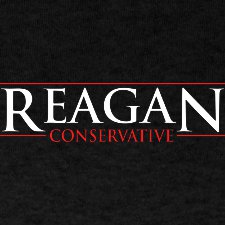GOP Rep. Paul Ryan tackles Obama's path to deficit disaster
By Michael Gerson
The Washington PostWednesday, February 10, 2010
The new era of Democratic bipartisanship, like cut flowers in a vase, wilted in less than a week.
During his question time at the House Republican retreat, President Obama elevated congressman and budget expert Paul Ryan as a "sincere guy" whose budget blueprint -- which, according to the Congressional Budget Office (CBO), eventually achieves a balanced budget -- has "some ideas in there that I would agree with." Days later, Democratic legislators held a conference call to lambaste Ryan's plan as a vicious, voucherizing, privatizing assault on Social Security, Medicare and every non-millionaire American. Progressive advocacy groups and liberal bloggers joined the jeering in practiced harmony.
The attack "came out of the Democratic National Committee, and that is the White House," Ryan told me recently, sounding both disappointed and unsurprised. On the deficit, Obama's outreach to Republicans has been a ploy, which is to say, a deception. Once again, a president so impressed by his own idealism has become the nation's main manufacturer of public cynicism.
To Ryan, the motivations of Democratic leaders are transparent. "They had an ugly week of budget news. They are precipitating a debt crisis, with deficits that get up to 85 percent of GDP and never get to a sustainable level. They are flirting with economic disaster." So they are attempting some "misdirection," calling attention to Ryan's recently updated budget road map (
click here for Roadmap 2.0) -- first unveiled two years ago (
click here for the 2008 Roadmap) -- which proposes difficult entitlement reforms. When all else fails, change the subject to Republican heartlessness.
From a political perspective, Democratic leaders are right to single out Ryan for unkind attention. He is among their greatest long-term threats. He possesses the appeal of a young Jack Kemp (for whom both Ryan and I once worked). Like Kemp, Ryan is aggressively likable, crackling with ideas and shockingly sincere.
But unlike Kemp -- who didn't give a rip for deficits, being focused exclusively on economic growth -- Ryan is the cheerful prophet of deficit doom. "For the first generation of supply-siders," he explains, "the fiscal balance sheet was not as bad. The second generation of supply-siders needs to be just as concerned about debt and deficits. They are the greatest threats to economic growth today."
Fiscal Obamaism is not just a temporary, Keynesian, countercyclical spike in spending; it is deficits to infinity and beyond. "It is the interest that kills you," Ryan says. In a few weeks, he expects the CBO to report that, in the 10th year of Obama's budget, the federal government will "spend nearly a trillion dollars a year, just on interest! This traps us as a country. Inflation will wipe out savings and hurt people on fixed incomes. A plunging dollar will make goods more expensive. High tax rates will undermine economic growth. It is the path of national decline."
But unlike other deficit hawks, Ryan courageously -- some would say foolhardily -- presents his own alternative. His budget road map offers many proposals, but one big vision. Over time, Ryan concentrates government spending on the poor through means-tested programs, patching holes in the safety net while making entitlements more sustainable. He saves money by providing the middle class with defined-contribution benefits -- private retirement accounts and health vouchers -- that are more portable but less generous in the long run. And he expects a growing economy, liberated from debt and inflation, to provide more real gains for middle-class citizens than they lose from lower government benefits. Ryanism is not only a technical solution to endless deficits; it represents an alternative political philosophy.
For decades, culminating in the Obama health reform proposal, Democrats have attempted to build a political constituency for the welfare state by expanding its provisions to larger and larger portions of the middle class. Ryan proposes a federal system that focuses on helping the poor, while encouraging the middle class to take more personal responsibility in a dynamic economy. It is the appeal of security vs. the appeal of independence and enterprise.
Both sides of this debate make serious arguments, rooted in differing visions of justice and freedom. But the advocates of security, including Obama, have a serious problem: They are on a path to economic ruin.
In his Kemp-like way, Ryan manages to find a bright side. "The way I look at it, we were sleepwalking down this path anyway. The Democratic overreach woke people up. It was a splash of cold water in the face of every voter. Now we have a new, more serious conversation. And I'm not going to back down."
mgerson@globalengage.org




